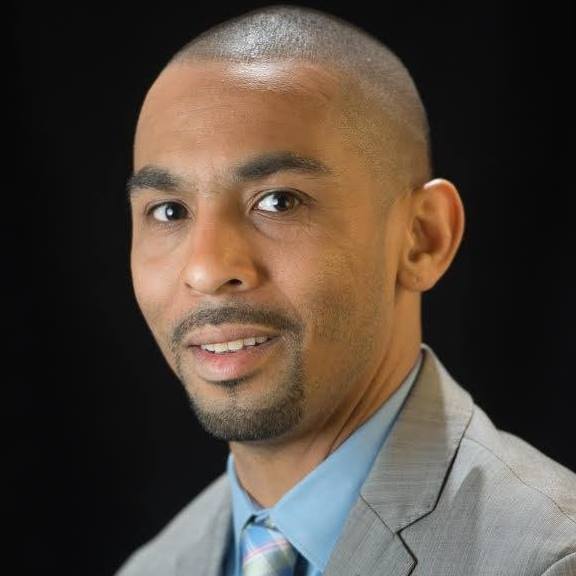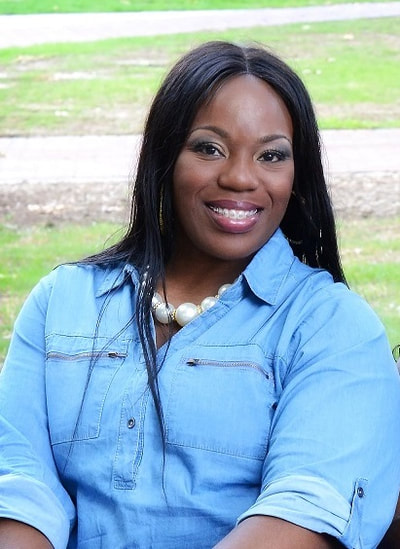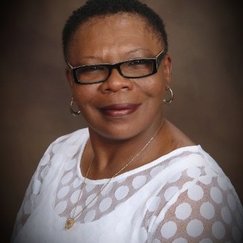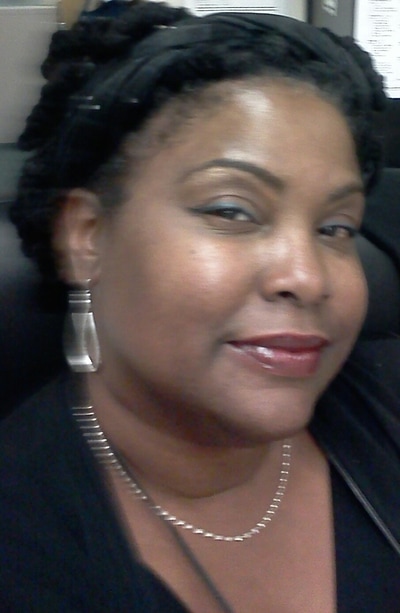African American
Scroll below to select research from the following scholars
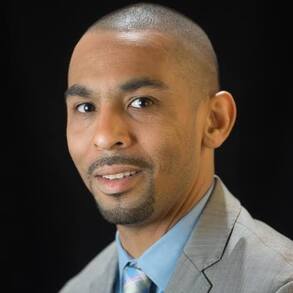
Dr. Jonelle B.A. Knox
Title: Associate Higher Education Officer – Academic Affairs
Research Topic: Experiences of Successful Black Males at a Hispanic Serving Community College
Institution: Morgan State University
Committee Chair: Rosemary Gillett-Karam, Ph.D.
Abstract: This qualitative collective case study sought to understand experiences of Black males who successfully graduated from a northeast Hispanic serving community college. The overarching question that guided this study was: How do the experiences of Black male students who participated in a male initiative program at Pinewood Community College differ from those of Black males who did not?
Padilla et al.’s (1997) local model of successful minority students (LMSMS) was used as the conceptual framework to guide this study. The study explored the experiences of 10 Black men at a Hispanic-serving community college who successfully overcame barriers and successfully graduated. The participants were broken into two groups, five black males who participated in a minority male initiative program and five Black males who did not participate in a minority male initiative program. Data were collected utilizing in-depth semi-structure interviews.
The findings from analysis revealed that: 1) Black males at the Hispanic serving community college faced both internal and external barriers that impeded their persistence to graduation, 2) student engagement with similar peers and cohort programs improved persistence and graduation of Black males, 3) Black males who developed and created an internal “family” that encompassed faculty, peers, and staff at the institution were able to persist to graduation, and 4) the lack of organization at the institution was a barrier that Black males had to overcome to successfully persist to graduation.
Click the link below to download the study!
Title: Associate Higher Education Officer – Academic Affairs
Research Topic: Experiences of Successful Black Males at a Hispanic Serving Community College
Institution: Morgan State University
Committee Chair: Rosemary Gillett-Karam, Ph.D.
Abstract: This qualitative collective case study sought to understand experiences of Black males who successfully graduated from a northeast Hispanic serving community college. The overarching question that guided this study was: How do the experiences of Black male students who participated in a male initiative program at Pinewood Community College differ from those of Black males who did not?
Padilla et al.’s (1997) local model of successful minority students (LMSMS) was used as the conceptual framework to guide this study. The study explored the experiences of 10 Black men at a Hispanic-serving community college who successfully overcame barriers and successfully graduated. The participants were broken into two groups, five black males who participated in a minority male initiative program and five Black males who did not participate in a minority male initiative program. Data were collected utilizing in-depth semi-structure interviews.
The findings from analysis revealed that: 1) Black males at the Hispanic serving community college faced both internal and external barriers that impeded their persistence to graduation, 2) student engagement with similar peers and cohort programs improved persistence and graduation of Black males, 3) Black males who developed and created an internal “family” that encompassed faculty, peers, and staff at the institution were able to persist to graduation, and 4) the lack of organization at the institution was a barrier that Black males had to overcome to successfully persist to graduation.
Click the link below to download the study!
| jknox-9-26-17-final-dissertation.pdf | |
| File Size: | 1194 kb |
| File Type: | |

Dr. Melodie Carr-Winston
Title: Art Teacher and Adjunct Faculty
Research Topic: A Mixed-Methods Study Investigating the Relationship between Minority Student Perceptions of the Climate and Culture of Their Institution and the Climate and Culture of Higher Education
Institution: Lindenwod University
Committee Chair: Dr. Roger Nasser, Jr.
Abstract: The researcher conducted a mixed-methods study at a private, Midwestern, Predominantly White institution in order to determine the relationship between minority student perceptions of higher education and minority student perceptions of their institution. The goal of the study was to determine whether minority student perceptions of the climate and culture of their institution influenced their perception of higher education as a whole. Another objective was to determine whether minority student perceptions connected to minority student retention. To determine the relationship, the researcher surveyed 20 undergraduate, African American students and conducted one-on-one interviews with three of the students between the fall of 2017 and the summer of 2018.The researcher analyzed the results of the climate and culture perceptions survey instruments to determine relationships between minority student perceptions of the culture of higher education and minority student perceptions of the culture of their school. Secondly, the researcher analyzed the relationship between minority student perceptions of the climate of higher education and minority student perceptions of the climate of the school. Through quantitative analysis, the researcher determined there was no relationship between minority student perceptions of the culture and climate of higher education broadly, and their perceptions of the culture and climate of their institution.
Qualitative analyses suggested students believed their perception of school climate and culture mirrored the climate and culture of higher education. Perceptions included facing racism and microaggressions, a lack of support from faculty, and not feeling intentionally included in campus programming all while having a sense of safety on campus. Regardless of whether student perceptions of higher education were positive or negative, each student who did not graduate that year intended to return the following academic year. Individual reasons for intent to return determined the relationship between minority student perceptions of higher education and minority student retention.
Recommendations from the researcher included exploring mentoring programs geared toward minority students, investigating the benefits of a diversity course for all students, implementing an African American Studies program, conducting research focused on reasons minority students remain at an institution, and the functionality of other groups considered minority in higher education. Exploring the aforementioned suggestions in depth could lead to a better overall understanding of how minority students can receive support and experience more retention in higher education.
Click the link below to download the study!
Title: Art Teacher and Adjunct Faculty
Research Topic: A Mixed-Methods Study Investigating the Relationship between Minority Student Perceptions of the Climate and Culture of Their Institution and the Climate and Culture of Higher Education
Institution: Lindenwod University
Committee Chair: Dr. Roger Nasser, Jr.
Abstract: The researcher conducted a mixed-methods study at a private, Midwestern, Predominantly White institution in order to determine the relationship between minority student perceptions of higher education and minority student perceptions of their institution. The goal of the study was to determine whether minority student perceptions of the climate and culture of their institution influenced their perception of higher education as a whole. Another objective was to determine whether minority student perceptions connected to minority student retention. To determine the relationship, the researcher surveyed 20 undergraduate, African American students and conducted one-on-one interviews with three of the students between the fall of 2017 and the summer of 2018.The researcher analyzed the results of the climate and culture perceptions survey instruments to determine relationships between minority student perceptions of the culture of higher education and minority student perceptions of the culture of their school. Secondly, the researcher analyzed the relationship between minority student perceptions of the climate of higher education and minority student perceptions of the climate of the school. Through quantitative analysis, the researcher determined there was no relationship between minority student perceptions of the culture and climate of higher education broadly, and their perceptions of the culture and climate of their institution.
Qualitative analyses suggested students believed their perception of school climate and culture mirrored the climate and culture of higher education. Perceptions included facing racism and microaggressions, a lack of support from faculty, and not feeling intentionally included in campus programming all while having a sense of safety on campus. Regardless of whether student perceptions of higher education were positive or negative, each student who did not graduate that year intended to return the following academic year. Individual reasons for intent to return determined the relationship between minority student perceptions of higher education and minority student retention.
Recommendations from the researcher included exploring mentoring programs geared toward minority students, investigating the benefits of a diversity course for all students, implementing an African American Studies program, conducting research focused on reasons minority students remain at an institution, and the functionality of other groups considered minority in higher education. Exploring the aforementioned suggestions in depth could lead to a better overall understanding of how minority students can receive support and experience more retention in higher education.
Click the link below to download the study!
| melodie_carr-winston.pdf | |
| File Size: | 912 kb |
| File Type: | |
 @CAleaseWriter
@CAleaseWriter
Dr. Cynthia Alease Smith @CAleaseWriter
Title: Educator and Writer
Research Topic: Writing While Black – Exploring Perceptions of African American Writing in the 21st Century
Institution: Gwynedd Mercy University
Committee Chair: Rodney E. Altemose, Ed.D.
Abstract: Purpose was to explore perceptions and attitudes that may shape acceptance of African American writing among readers and writers in all areas of writing, including entertainment, academia and business. The study did not intend to solve any problems with regard to perceptions nor prove that problems existed because of perceptions, but to raise awareness of how important perceptions are to acceptance and efficacy of African American writing and to ignite more scholarly research into the subject of race and African American writing in the 21st century and beyond.
The study used a mixed method of qualitative and quantitative analyses of measurable responses and authentic, reflective responses from survey participants and interviewees. Findings indicated that more scholarly research into the efficacy, relevance and the impact of racial stereotypes, biases and discrimination in academia, entertainment and business in America facing African Americans is necessary.
Click the link below to download the study!
Title: Educator and Writer
Research Topic: Writing While Black – Exploring Perceptions of African American Writing in the 21st Century
Institution: Gwynedd Mercy University
Committee Chair: Rodney E. Altemose, Ed.D.
Abstract: Purpose was to explore perceptions and attitudes that may shape acceptance of African American writing among readers and writers in all areas of writing, including entertainment, academia and business. The study did not intend to solve any problems with regard to perceptions nor prove that problems existed because of perceptions, but to raise awareness of how important perceptions are to acceptance and efficacy of African American writing and to ignite more scholarly research into the subject of race and African American writing in the 21st century and beyond.
The study used a mixed method of qualitative and quantitative analyses of measurable responses and authentic, reflective responses from survey participants and interviewees. Findings indicated that more scholarly research into the efficacy, relevance and the impact of racial stereotypes, biases and discrimination in academia, entertainment and business in America facing African Americans is necessary.
Click the link below to download the study!
| writing_while_black_exploring_perception.pdf | |
| File Size: | 2057 kb |
| File Type: | |
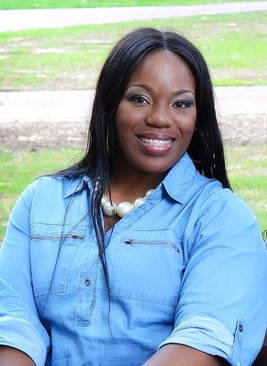
Dr. Sherra´ M. White
Title: Clinical Psychotherapist
Research Topic: Resilience Differences of Black Greek-Lettered Organization Members and African-American Students at Predominantly White Institutions
Institution: East Carolina University
Committee Chair: Dr. Paul Toriello
Abstract: Even though the number of African American students has increased on college campuses, particularly Predominately White Institutions (PWIs), over the last century, they are less likely to graduate than their White counterparts are. They face discrimination, hostile environments, adversity, low or no social or mentoring support, and often feel compelled to validate their intellectual capabilities to White peers in the classroom and on the collegiate campus. The purpose of this study will be to compare resiliency, ethnic identity, race-related stress and educational performance between Black Greek-Letter Organization (BGLO) undergraduate members and African American students attending a Predominately White Institution (PWI). Five questionnaires will be utilized to measure the constructs: Connor Davidson Resilience Scale (CD-RISC), Multigroup Ethnic Identity Measure-Revised (MEIM-R), College Resilience Questionnaire-Revised (CRQ-R), Index of Race-Related Stress-Brief version (IRRS-B) and a Demographic survey.
Based on established theory and previous research, we will test the following hypotheses (1) Higher average student organization hours/per week will predict higher cultural insight/ belonging as measured by the Multigroup Ethnic Identity Measure-Revised (MEIM-R), (2) Higher MEIM-R scores will predict higher resiliency as measured by the Connor-Davidson Resiliency Scale (CD-RISC), (3) Higher Race-Related Stress (Index of Race-Related Stress Brief: IRRS-B) will predict lower educational resilience scores as measured by the College Resilience Questionnaire-Revised (CRQ), (4) Resilience scores as measured by the CD-RISC will be higher among members of BGLO’s than non-members, (5) Educational resilience scores will be higher among members of BGLO’s than non-member students as measured by the College Resilience Questionnaire-Revised (CRQ). The results of this study will help answer the important question of determining if positive cultural social structures support African American students’ resilience and success in college.
Click the link below to download the study!
Title: Clinical Psychotherapist
Research Topic: Resilience Differences of Black Greek-Lettered Organization Members and African-American Students at Predominantly White Institutions
Institution: East Carolina University
Committee Chair: Dr. Paul Toriello
Abstract: Even though the number of African American students has increased on college campuses, particularly Predominately White Institutions (PWIs), over the last century, they are less likely to graduate than their White counterparts are. They face discrimination, hostile environments, adversity, low or no social or mentoring support, and often feel compelled to validate their intellectual capabilities to White peers in the classroom and on the collegiate campus. The purpose of this study will be to compare resiliency, ethnic identity, race-related stress and educational performance between Black Greek-Letter Organization (BGLO) undergraduate members and African American students attending a Predominately White Institution (PWI). Five questionnaires will be utilized to measure the constructs: Connor Davidson Resilience Scale (CD-RISC), Multigroup Ethnic Identity Measure-Revised (MEIM-R), College Resilience Questionnaire-Revised (CRQ-R), Index of Race-Related Stress-Brief version (IRRS-B) and a Demographic survey.
Based on established theory and previous research, we will test the following hypotheses (1) Higher average student organization hours/per week will predict higher cultural insight/ belonging as measured by the Multigroup Ethnic Identity Measure-Revised (MEIM-R), (2) Higher MEIM-R scores will predict higher resiliency as measured by the Connor-Davidson Resiliency Scale (CD-RISC), (3) Higher Race-Related Stress (Index of Race-Related Stress Brief: IRRS-B) will predict lower educational resilience scores as measured by the College Resilience Questionnaire-Revised (CRQ), (4) Resilience scores as measured by the CD-RISC will be higher among members of BGLO’s than non-members, (5) Educational resilience scores will be higher among members of BGLO’s than non-member students as measured by the College Resilience Questionnaire-Revised (CRQ). The results of this study will help answer the important question of determining if positive cultural social structures support African American students’ resilience and success in college.
Click the link below to download the study!
| white_ecu_0600d_11089.pdf | |
| File Size: | 1194 kb |
| File Type: | |
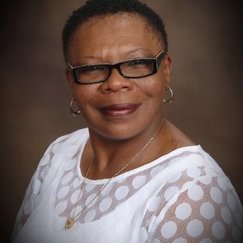
Dr. Cathy Q. Williams
Title: Executive Director, Lazarus House Initiative, Incorporated
Research Topic: Black Online, Doctoral Psychology Graduates’ Academic Achievement: A Phenomenological Self-Directed Learning Perspective
Institution: Walden University
Committee Chair: Dr. Amy Hakim
Abstract: Guided by the conceptual framework of self-directed learning and culture, this study investigated the effectiveness of Title IV private, for-profit colleges and universities (FPCUs). Little research has examined this topic, which is problematic considering the disproportionate rate of student loan defaults experienced by Black FPCU borrowers. A phenomenological design was used to explore the meaning of academic achievement for Black doctorate recipients who attained a doctorate in psychology through an FPCU. This study specifically examined how Black students experience the completion of doctoral psychology programs at 2 FPCUs and what factors contributed to these students finishing their degrees. A unique-criterion-purposive sample of 7 Black students who completed doctoral psychology programs at FPCUs within the past 5 years was recruited to participate in telephone interviews. Moustakas’ data analysis steps were applied to the data. The results indicated that study participants saw an association between attaining their doctorates in psychology and their self-actualization. They shared the experiences of selecting a suitable FPCU, choosing a specialty area, negotiating transfer credits, completing the doctoral coursework phase, and completing the dissertation phase. Their commitment to achieving self-actualization was a salient experience in finishing their degrees. A core aspect of self-actualization was their cultural knowledge, which helped them to overcome challenges and persevere. However, the results uncovered some insufficiencies in the FPCUs’ practices. They have implications for positive social change by highlighting how FPCU academic support services might use cultural knowledge and self-actualization strategies to maximize the successful matriculation of Black students.
Click the link below to download the study!
Title: Executive Director, Lazarus House Initiative, Incorporated
Research Topic: Black Online, Doctoral Psychology Graduates’ Academic Achievement: A Phenomenological Self-Directed Learning Perspective
Institution: Walden University
Committee Chair: Dr. Amy Hakim
Abstract: Guided by the conceptual framework of self-directed learning and culture, this study investigated the effectiveness of Title IV private, for-profit colleges and universities (FPCUs). Little research has examined this topic, which is problematic considering the disproportionate rate of student loan defaults experienced by Black FPCU borrowers. A phenomenological design was used to explore the meaning of academic achievement for Black doctorate recipients who attained a doctorate in psychology through an FPCU. This study specifically examined how Black students experience the completion of doctoral psychology programs at 2 FPCUs and what factors contributed to these students finishing their degrees. A unique-criterion-purposive sample of 7 Black students who completed doctoral psychology programs at FPCUs within the past 5 years was recruited to participate in telephone interviews. Moustakas’ data analysis steps were applied to the data. The results indicated that study participants saw an association between attaining their doctorates in psychology and their self-actualization. They shared the experiences of selecting a suitable FPCU, choosing a specialty area, negotiating transfer credits, completing the doctoral coursework phase, and completing the dissertation phase. Their commitment to achieving self-actualization was a salient experience in finishing their degrees. A core aspect of self-actualization was their cultural knowledge, which helped them to overcome challenges and persevere. However, the results uncovered some insufficiencies in the FPCUs’ practices. They have implications for positive social change by highlighting how FPCU academic support services might use cultural knowledge and self-actualization strategies to maximize the successful matriculation of Black students.
Click the link below to download the study!
| black_online_doctoral_psychology_graduates_academic_achievement.pdf | |
| File Size: | 1316 kb |
| File Type: | |
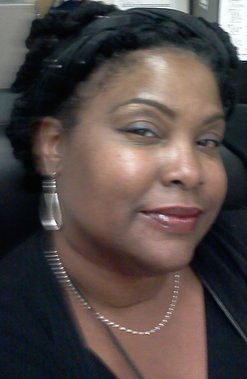
Dr. Sharron 'Shay' Scott
Title: Instructor, Temple University
Program Director, REEL Black History & Culture
Research Topic: The Struggle is Real: Black Doctoral Students' Experiences Aspiring to the Professoriate
Institution: Temple University
Committee Chair: Dr. James E. Davis
Abstract: This qualitative research explored the unique experiences of Black doctoral students. Specifically, Black doctoral students’ perceptions of themselves, their academic program, and the possible role of racism were explored as factors that may contribute to the Black Faculty Gap phenomena. Study participants included eight Black Ph.D. students enrolled in the social sciences, including education at a large, urban research university in the Northeast. Accounts of the findings include the collection, data analysis, and interpretations drawing from the lens of critical race theory and the theoretical frameworks of self-efficacy and symbolic interactionism.
The findings indicate specifically that Black doctoral students struggle with racialized experiences, pressures to prove themselves, and perceptions of unfitness for the professoriate. Roundabout Racism, Prove Pressure, and The Fit Factor are the three themes that emerged from this study. Findings also indicate that despite their respective struggles, many Black doctoral students seek to change the Eurocentric education paradigm and become role models for other students of color. This study’s findings and implications have the potential to support and inspire Black and other minoritized doctoral students, inform higher education institutions of impediments in doctoral programs, and the ways in which the Black Faculty Gap may be reduced and/or eliminated. Recommendations for further research include, but are not limited to further studies on Black doctoral students’ perception of advisor matching, program resources and accessibility, research preparedness for the professoriate, and contemporary racism and cultural competency training for higher education faculty, staff, and students.
Click the link below to download the study!
Title: Instructor, Temple University
Program Director, REEL Black History & Culture
Research Topic: The Struggle is Real: Black Doctoral Students' Experiences Aspiring to the Professoriate
Institution: Temple University
Committee Chair: Dr. James E. Davis
Abstract: This qualitative research explored the unique experiences of Black doctoral students. Specifically, Black doctoral students’ perceptions of themselves, their academic program, and the possible role of racism were explored as factors that may contribute to the Black Faculty Gap phenomena. Study participants included eight Black Ph.D. students enrolled in the social sciences, including education at a large, urban research university in the Northeast. Accounts of the findings include the collection, data analysis, and interpretations drawing from the lens of critical race theory and the theoretical frameworks of self-efficacy and symbolic interactionism.
The findings indicate specifically that Black doctoral students struggle with racialized experiences, pressures to prove themselves, and perceptions of unfitness for the professoriate. Roundabout Racism, Prove Pressure, and The Fit Factor are the three themes that emerged from this study. Findings also indicate that despite their respective struggles, many Black doctoral students seek to change the Eurocentric education paradigm and become role models for other students of color. This study’s findings and implications have the potential to support and inspire Black and other minoritized doctoral students, inform higher education institutions of impediments in doctoral programs, and the ways in which the Black Faculty Gap may be reduced and/or eliminated. Recommendations for further research include, but are not limited to further studies on Black doctoral students’ perception of advisor matching, program resources and accessibility, research preparedness for the professoriate, and contemporary racism and cultural competency training for higher education faculty, staff, and students.
Click the link below to download the study!
| sharronvscott_dissertation_may_2017.pdf | |
| File Size: | 1049 kb |
| File Type: | |
